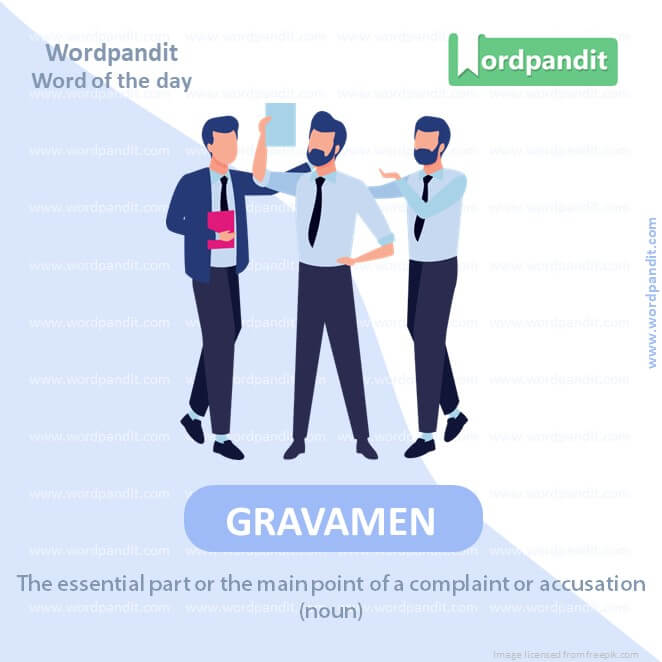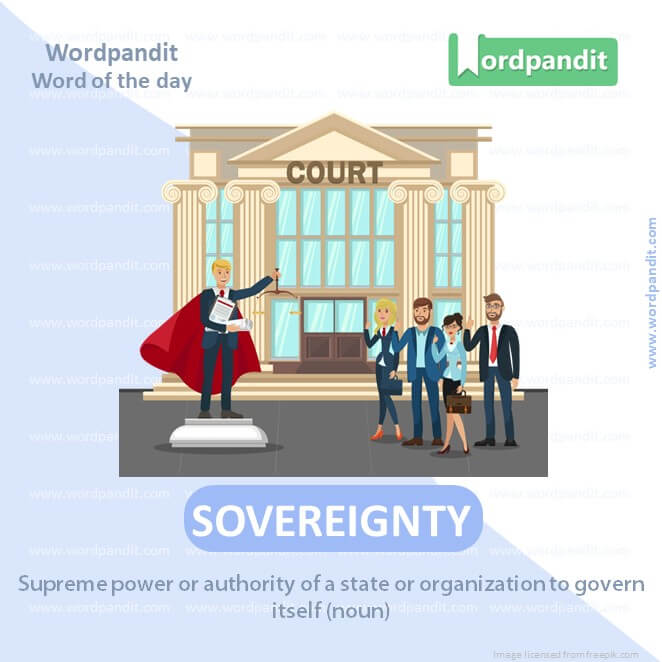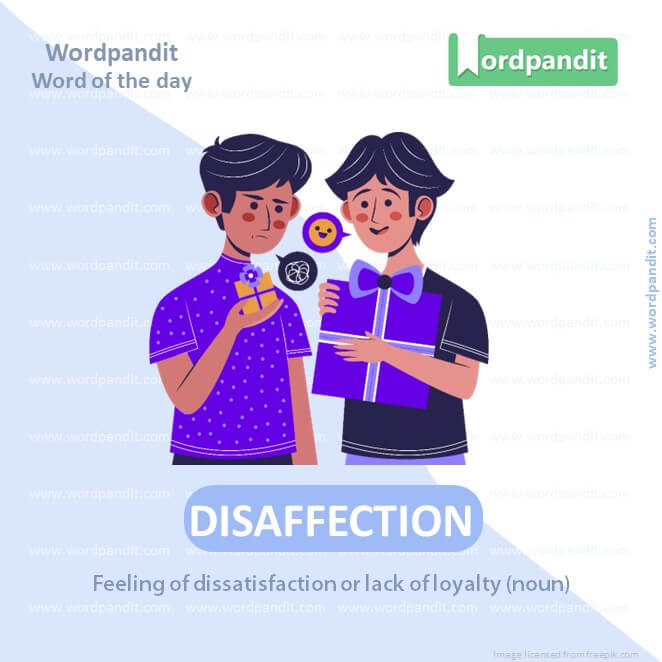Daily Vocabulary Words: List of Daily Used Words
Hi there. Welcome to this special section @ Wordpandit.
Our endeavour here is straightforward: highlighting important daily vocabulary words, you would encounter in The Hindu. This is your repository of commonly used words; essentially, we are posting a list of daily used words. Hence, this has significant practical application as it teaches you words that are commonly used in a leading publication such as The Hindu.
Visit the website daily to learn words from The Hindu.

WORD-1: INTIMIDATE
CONTEXT: While the definition of ‘terrorist act’ in the Sanhita has been largely borrowed from the Unlawful Activities (Prevention) Act (UAPA) of 1967, the words ‘to strike terror in the people’ have been replaced with the words ‘to intimidate the general public’. Though less severe, these words do not change the gravamen of the section.
SOURCE: The Hindu
EXPLANATORY PARAGRAPH: Imagine someone tries to scare you so that you do what they want, like a bully at school making a scary face so you give them your candy. That’s what “intimidate” means.
MEANING: To make someone fearful or less confident (verb).
PRONUNCIATION: in-TIM-id-ate
SYNONYMS: Threaten, bully, terrorize, frighten, menace, scare, cow, overawe.
USAGE EXAMPLES:
1. The big dog tried to intimidate the little one.
2. Some bosses intimidate their workers.
3. He tried to intimidate her with his angry voice.
4. Monsters in stories often intimidate people.

WORD-2: GRAVAMEN
CONTEXT: While the definition of ‘terrorist act’ in the Sanhita has been largely borrowed from the Unlawful Activities (Prevention) Act (UAPA) of 1967, the words ‘to strike terror in the people’ have been replaced with the words ‘to intimidate the general public’. Though less severe, these words do not change the gravamen of the section.
SOURCE: The Hindu
EXPLANATORY PARAGRAPH: Imagine you have a big bag of toys, and the most important toy is your favorite one. “Gravamen” is like that important toy; it means the main point or most important part of something.
MEANING: The essential part or the main point of a complaint or accusation (noun).
PRONUNCIATION: gra-VAY-men
SYNONYMS: Essence, core, heart, centerpiece, crux, basis, foundation.
USAGE EXAMPLES:
1. The gravamen of his argument was fairness.
2. She focused on the gravamen of the complaint.
3. The lawyer discussed the gravamen of the case.
4. The gravamen of the story was about love.

WORD-3: ENDANGERING
CONTEXT: Another offence reintroduced with some changes (in place of sedition) is about ‘acts endangering sovereignty, unity, and integrity of India’. This appears more objective as it does not intend to punish criticism of or disaffection towards the government.
SOURCE: The Hindu
EXPLANATORY PARAGRAPH: Imagine doing something that might break your favorite toy or hurt your pet fish. “Endangering” means putting someone or something at risk or in danger.
MEANING: Putting someone or something at risk or in harm’s way (verb).
PRONUNCIATION: en-DAN-jer-ing
SYNONYMS: Risking, threatening, imperiling, jeopardizing, exposing, compromising, harming.
USAGE EXAMPLES:
1. Leaving the gate open is endangering the animals.
2. He was arrested for endangering public safety.
3. She was accused of endangering the child.
4.Driving fast in rain is endangering everyone on the road.

WORD-4: SOVEREIGNTY
CONTEXT: Another offence reintroduced with some changes (in place of sedition) is about ‘acts endangering sovereignty, unity, and integrity of India’. This appears more objective as it does not intend to punish criticism of or disaffection towards the government.
SOURCE: The Hindu
EXPLANATORY PARAGRAPH: Imagine your treehouse where you make all the rules and decide who can come in. “Sovereignty” is like that; it means the power or authority of a country or place to govern itself.
MEANING: Supreme power or authority to govern itself (noun).
PRONUNCIATION: SOV-er-en-tee
SYNONYMS: Authority, rule, dominion, supremacy, jurisdiction, control, command.
USAGE EXAMPLES:
1. The country wanted to keep its sovereignty.
2. They discussed the sovereignty of the island.
3. She studied the sovereignty of ancient empires.
4. Sovereignty is a key topic in international relations.

WORD-5: DISAFFECTION
CONTEXT: Another offence reintroduced with some changes (in place of sedition) is about ‘acts endangering sovereignty, unity, and integrity of India’. This appears more objective as it does not intend to punish criticism of or disaffection towards the government.
SOURCE: The Hindu
EXPLANATORY PARAGRAPH: Imagine you and your friend used to play together every day, but now you don’t want to because of a big fight. That feeling of not wanting to be friends anymore is called “disaffection”.
MEANING: Feeling of dissatisfaction or lack of loyalty (noun).
PRONUNCIATION: dis-uh-FEK-shun
SYNONYMS: Alienation, estrangement, disloyalty, discontent, unhappiness, disenchantment, disillusionment.
USAGE EXAMPLES:
1. There was disaffection among the team members.
2. The leader’s decision caused disaffection in the group.
3. He sensed disaffection in her words.
4. The news caused widespread disaffection among the fans.
WORD-6: SAFEGUARD
CONTEXT: The addition of words such as ‘purposely or knowingly’ serve as a safeguard because they indicate mandatory presence of the mens rea. But it would help if the meaning of ‘subversive activities’ is clarified to dispel fears of misinterpretation and misuse by the authorities.
SOURCE: The Hindu
EXPLANATORY PARAGRAPH: Think of a helmet you wear when you ride your bike. That helmet protects your head, right? Similarly, a “safeguard” is something that protects or keeps you safe from danger or harm.
MEANING: A measure taken to protect someone or something from harm (noun); to protect or shield (verb).
PRONUNCIATION: SAFE-guard
SYNONYMS: Protection, shield, defense, security, precaution, assurance, barrier.
USAGE EXAMPLES:
1. The fence is a safeguard against wild animals.
2. Parents safeguard their children from dangers.
3. The new rules are a safeguard for workers.
4. It’s important to safeguard our environment.
WORD-7: MENS REA
CONTEXT: The addition of words such as ‘purposely or knowingly’ serve as a safeguard because they indicate mandatory presence of the mens rea. But it would help if the meaning of ‘subversive activities’ is clarified to dispel fears of misinterpretation and misuse by the authorities.
SOURCE: The Hindu
EXPLANATORY PARAGRAPH: “Mens rea” is a fancy word from another language that means “guilty mind.” It’s like when someone does something bad on purpose and knows it’s wrong.
MEANING: The intention or knowledge of wrongdoing in a crime (noun).
PRONUNCIATION: menz RAY-ah
SYNONYMS: Guilty mind, intent, malice, forethought, criminal intent, premeditation.
USAGE EXAMPLES:
1. The court considered his mens rea before making a decision.
2. Without mens rea, it’s hard to prove the crime.
3. He argued that he lacked the mens rea for the offense.
4. Proving mens rea can be challenging for prosecutors.
WORD-8: SUBVERSIVE
CONTEXT: The addition of words such as ‘purposely or knowingly’ serve as a safeguard because they indicate mandatory presence of the mens rea. But it would help if the meaning of ‘subversive activities’ is clarified to dispel fears of misinterpretation and misuse by the authorities.
SOURCE: The Hindu
EXPLANATORY PARAGRAPH: Imagine a toy that quietly makes other toys not listen to their toy leader. “Subversive” is something or someone that tries to weaken or destroy an authority or system from within.
MEANING: Seeking or intended to undermine an established system or institution (adjective).
PRONUNCIATION: sub-VER-siv
SYNONYMS: Disruptive, rebellious, revolutionary, insurrectionary, seditious, treasonous.
USAGE EXAMPLES:
1. The government considered the group to be subversive.
2. Her ideas were seen as subversive in the conservative society.
3. He wrote a subversive article against the regime.
4. The organization was accused of having subversive intentions.
WORD-9: DISPEL
CONTEXT: The addition of words such as ‘purposely or knowingly’ serve as a safeguard because they indicate mandatory presence of the mens rea. But it would help if the meaning of ‘subversive activities’ is clarified to dispel fears of misinterpretation and misuse by the authorities.
SOURCE: The Hindu
EXPLANATORY PARAGRAPH: Think of a dark room where you feel scared. But when you turn on the light, all the darkness goes away. “Dispel” is like turning on that light, making something go away or disappear.
MEANING: To make doubts, feelings, or beliefs disappear (verb).
PRONUNCIATION: dis-PEL
SYNONYMS: Clear away, chase away, drive away, banish, eliminate, scatter.
USAGE EXAMPLES:
1. The sun came out to dispel the morning fog.
2. She tried to dispel the rumors about her.
3. The teacher’s explanation helped dispel our doubts.
4. His smile was enough to dispel her fears.
WORD-10: SYNDICATE
CONTEXT: Similarly, taking a cue from the Maharashtra Control of Organized Crime Act (MCOCA), 1999, a new offence called ‘organized offence’ has been added with the difference that three (instead of two) or more persons indulging in such activities would constitute an ‘organized crime syndicate’.
SOURCE: The Hindu
EXPLANATORY PARAGRAPH: A “syndicate” is like a team or group of people who join together to do a job or business. Like when you and your friends come together to sell lemonade in your neighborhood.
MEANING: A group of individuals or companies combined to promote a common interest or to achieve a common purpose (noun).
PRONUNCIATION: SIN-di-kate
SYNONYMS: Consortium, alliance, coalition, union, association, federation.
USAGE EXAMPLES:
1. The newspaper is owned by a syndicate of journalists.
2. They formed a syndicate to buy the expensive artwork.
3. The real estate syndicate decided to invest in the new project.
4. Crime syndicates have become a concern in the city.













